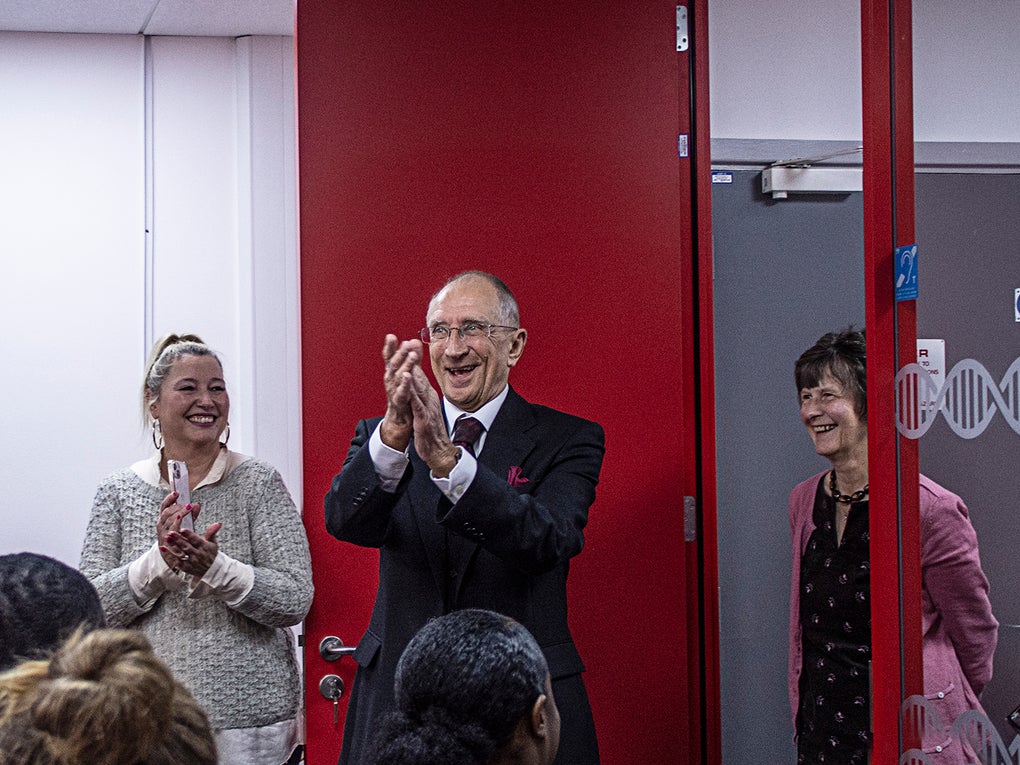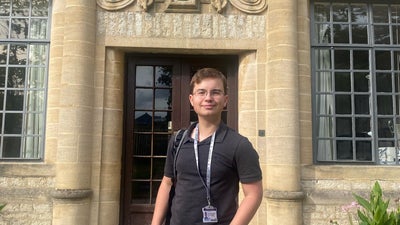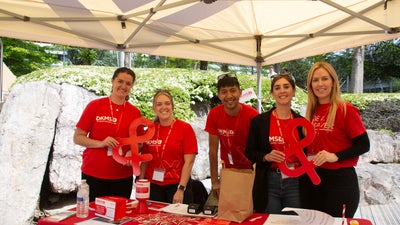
'Don’t Know Much Science (but science saved my life)'
How my life changed
I was diagnosed through a routine annual health check at work which was part of my employer’s benefits package. I had experienced no symptoms, other than extreme tiredness which I had ascribed to a high workload in the office and extensive foreign business travel.
Within the space of a few hours, I went from planning a year’s work and leisure activities, which were mainly centred on London, to facing extended periods of isolation in hospital in Southampton. I compensated as best I could to stay in touch with my ‘old’ life by continuing to work remotely from the hospital when I wasn’t too debilitated by the chemotherapy.
I had mixed feelings, mostly about the unknown immediate and long-term future, and I missed the companionship of colleagues and friends and the day-to-day involvement in working life. Looking back, I didn’t dwell much on the treatment, uncomfortable although it frequently was, because I believed implicitly that the medical staff would do whatever was humanly possible to bring about my recovery.

Finding my donor
I had been told by a consultant that because of 'something exotic in my family’s history', (I still don’t know what that was), it was proving difficult to find a matching donor. So I was surprised and delighted when, just a few weeks later, another consultant told me that not only had one 9-10ths match been found, but two – one in the UK and the other in Germany.
Transplant and further treatment
The transplant itself went successfully, but I encountered subsequent problems with GvHD and then two bouts of haemolytic anaemia, a year apart, which necessitated more hospital stays, more chemotherapy and multiple blood transfusions.
Discovering my donor's identity
I was allowed to know nothing at the time of my transplant, other than my donor was a man and that he was from the UK.
It took seven years from the transplant before I discovered the identity of my donor, Mark. Attempts by us to get in touch earlier under the anonymity rules weren’t successful. But in the end a letter from Mark, still sent anonymously, reached me. By that time I had resigned myself to never knowing who had saved my life so I was overwhelmed by the surprise, excited and relieved. I had always wanted to have the opportunity to thank him in person. I am so much looking forward to doing so.
What DKMS means to me
I regret to say that I was unaware of DKMS until Mark and I were able to exchange identities, and it was confirmed that he was on the DKMS register.
Though I have been a volunteer supporting the fight against blood cancer for the past five years or so, I am only now beginning to form a relationship with DKMS. I hope to be able to be of assistance in future to DKMS also.
Ideas for encouraging more stem cell donors
I would encourage as many people as possible to raise awareness through promotional events, personal story telling and networking. I will share my story with as many people as I can and encourage people to sign up as a blood stem cell donor.




